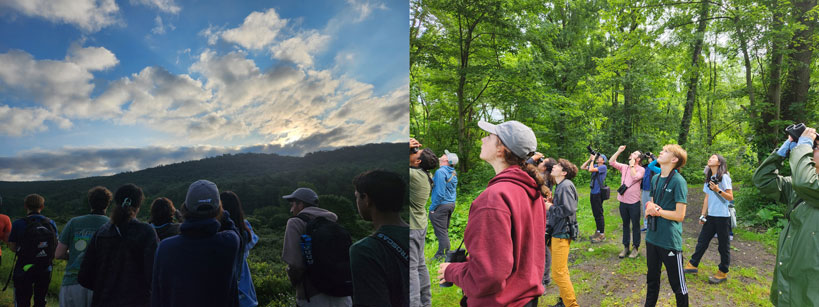MicroBirder Meets Cornell: Young Birders Taking Flight
This blog post was written by Lillian Williams, 2025 OurEcho Challenge 1st Place Winner and high school student from Chatham County, North Carolina.
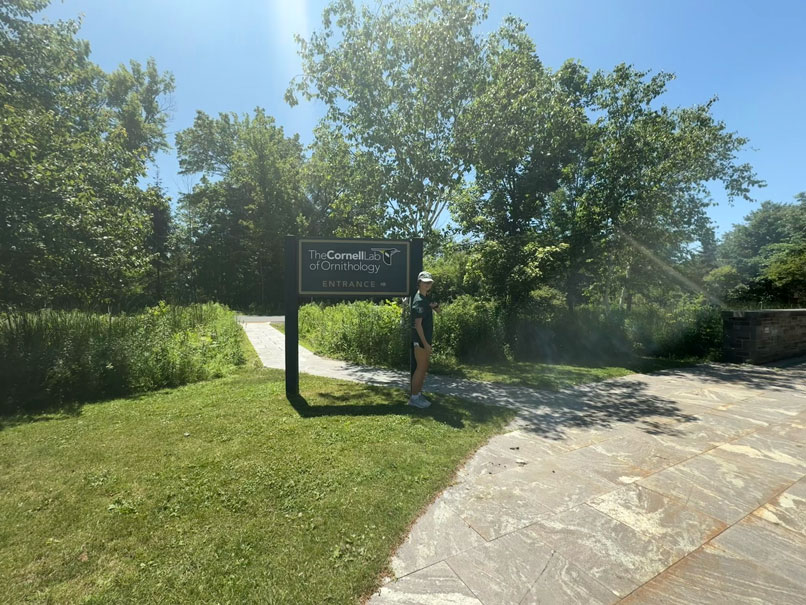
This June, I had the honor of attending the Cornell Young Birders Event. My OurEcho Challenge conservation project, MicroBirder, is going to explore how sound pollution affects bird populations, and through that work, I’ve become deeply interested in the ways science, technology, and conservation intersect. That’s what made attending the Cornell Young Birders Event at the Cornell Lab of Ornithology such an incredible opportunity.
I’ve long admired the work of the Cornell Lab, but being there in person gave me a whole new understanding of what’s possible in ornithology. I was shocked by how collaborative and interdisciplinary the research is. Whether the faculty’s title was ecologist, data scientist, or engineer, everyone seemed to be learning from each other and working together toward a shared goal of understanding and protecting birds.
My goal with this blog is to inspire anyone interested in the conservation of birds, citizen science, and/or computer science to apply for the Cornell Young Birders Event. I also want to take a deep dive and shed some light on what the event entails.
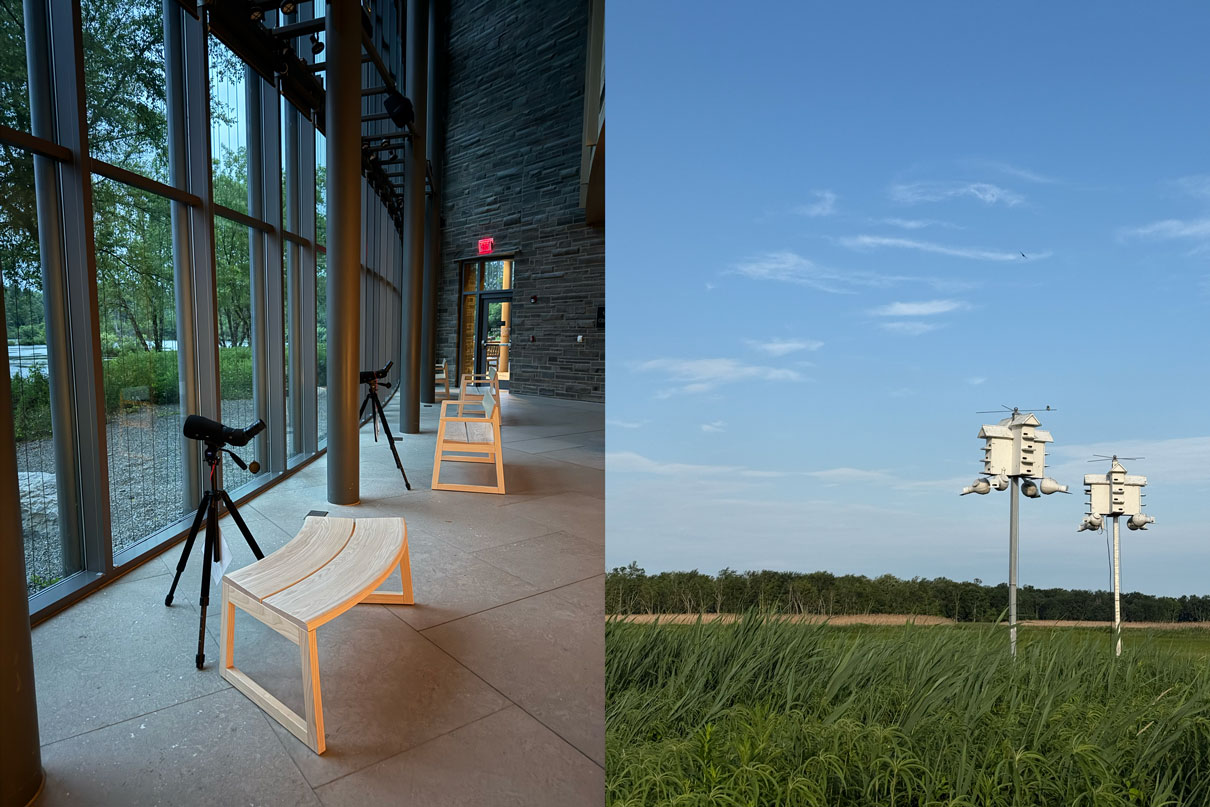
On the first day, I arrived at the lab early and went on a brief tour of the K. Lisa Yang Center for Conservation Bioacoustics and their engineering suite called the “Frog Barn”. I met with plenty of the staff and got to observe how they build and use scientific instruments for lab research. Seeing the insides of some of the acoustic instruments removed some abstraction between the finished product and the engineering process. It was super cool to see. Later in the day, the rest of the Young Birders arrived, and we watched presentations from staff talking about their “Birds and ___” stories. Essentially, they describe how they found an intersection between their interest in birds and their careers. Once the day had ceased, we moved all of our luggage into the Cornell Ecology House and settled down for the night.
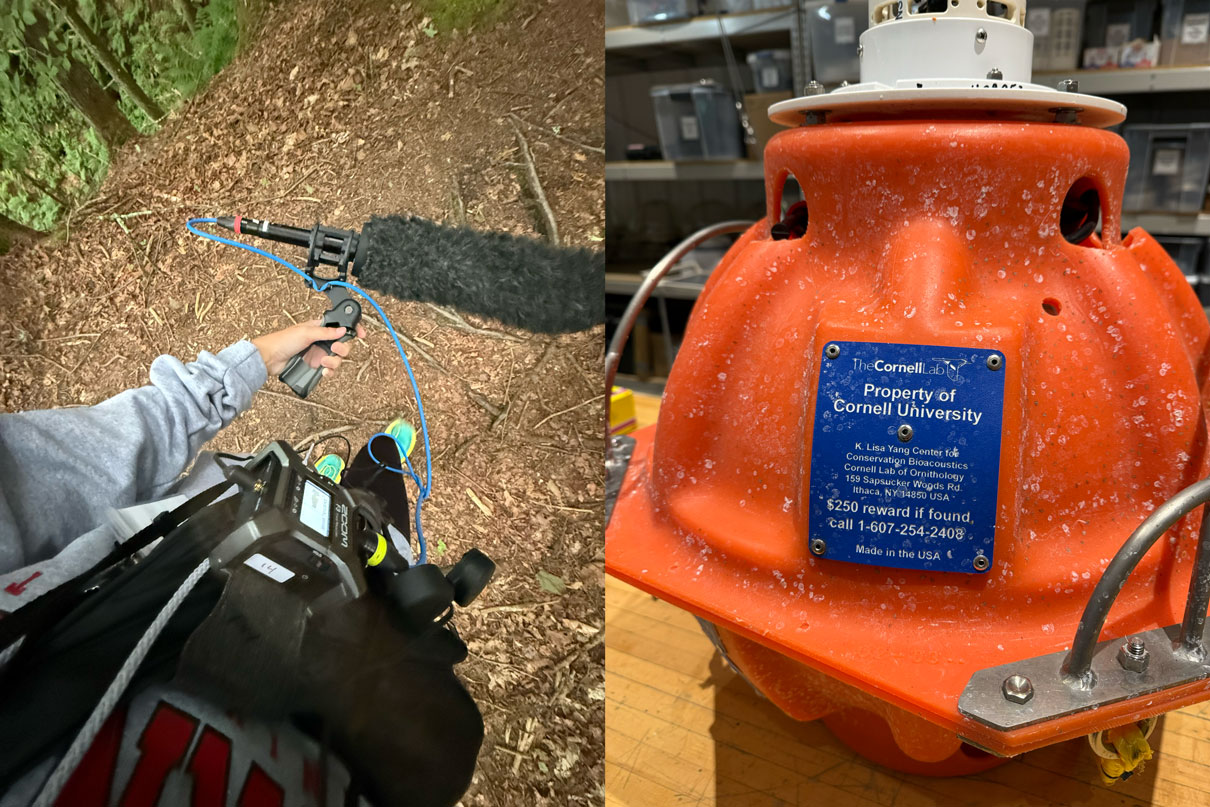
The second day, we had a sound recording workshop where we hiked through Shindagin Hollow State Forest with very high-quality sound recording equipment, such as the shotgun microphone and a parabolic microphone or “parabola”. The second half of the day, we spent hiking and birding. Upon arriving back at the lab, we were shown how to edit our sound recordings to be higher quality.
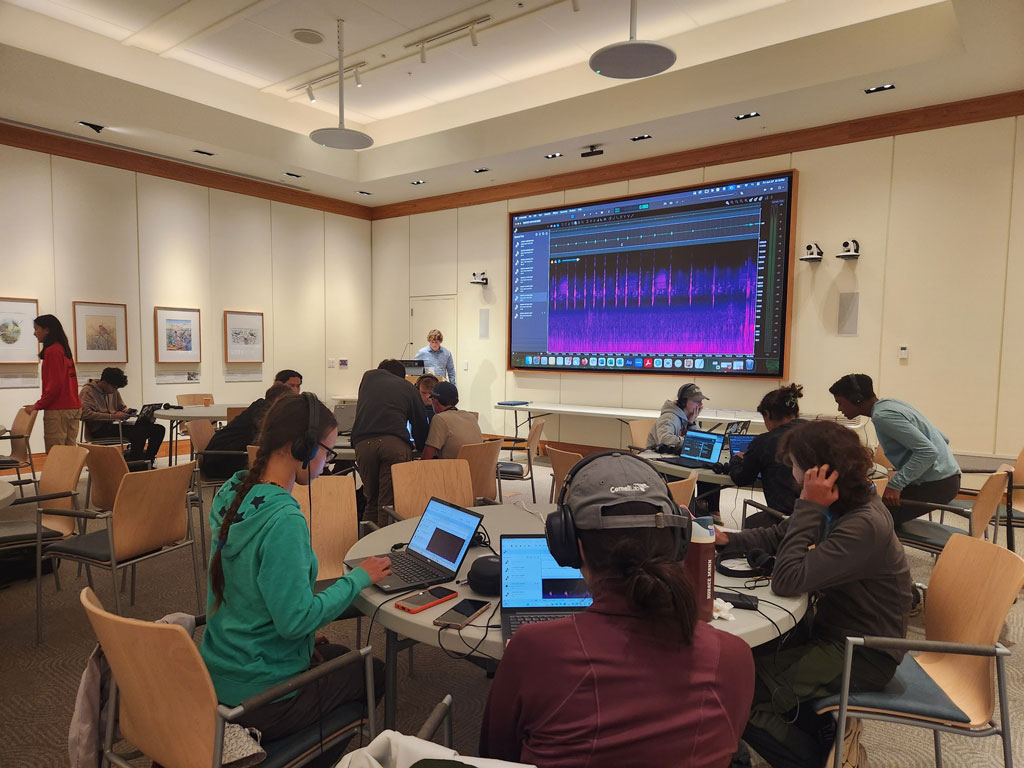
Once we had refined all of our sound recordings, we were given special clearance to annotate the data for Merlin training. We also got to learn some more about the backend of Merlin from some of the faculty working on it. After all of this, we attended some career presentations. Seeing how all the panelists took such different paths, and then all ended up in the same place, was extremely interesting to me. I enjoyed interacting with all of them; they are such wonderful people.
On the third day, we went on a nature drive and birding exploration around the Finger Lakes. It was so beautiful and fun. My favorite bird from that day was the Sandhill Crane, such a large and majestic bird. When we arrived back in the lab, we had a brief college application advice panel. After that, we were given a private tour of the Macaulay Library, K. Lisa Yang Center, and the Museum of Vertibrates. We then got to independently explore the endless collection of specimens. It was surreal to see and touch so many extinct species, some that ceased to exist before I was even born. It felt like what I can only describe as forbidden knowledge.
The fourth day started out hiking through the Lindsay-Parsons Biodiversity Preserve. We spent the whole day birding. When we got back to the lab, everyone was sad that the event was coming to an end. We spent our last bit of time together reflecting on the event and sharing our favorite memories as a group.
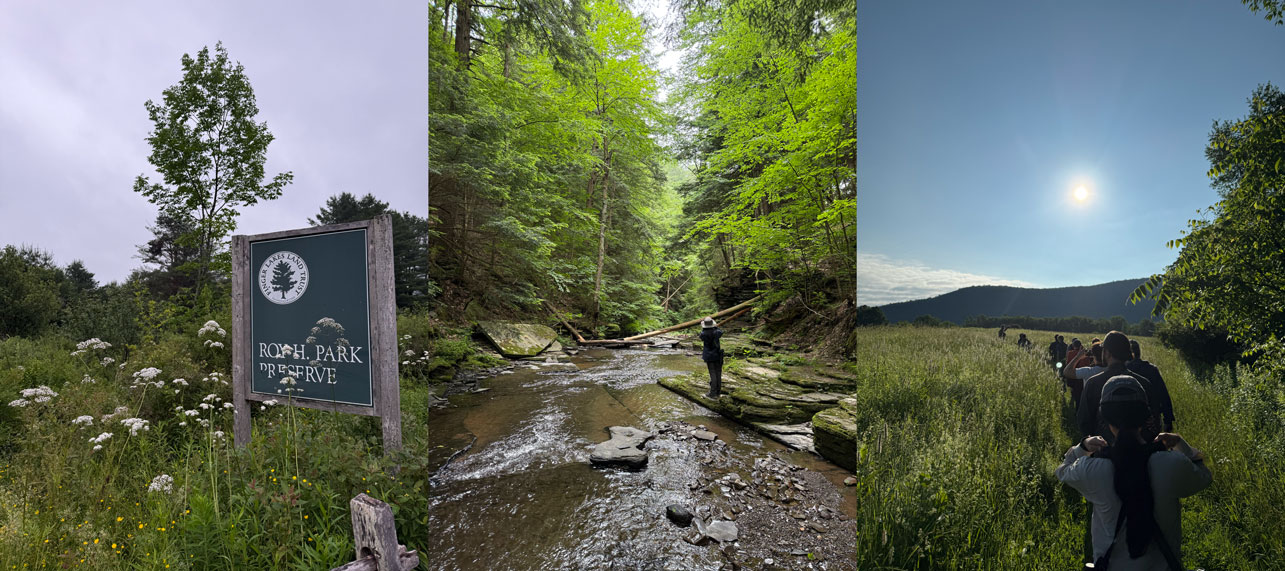
I took away so much from this event, but my main takeaway was clarity with regard to college and careers. Or, maybe not clarity, but acceptance of uncertainty. I learned from the career presentations and discussions that even if you don’t initially understand your direction, with passion and understanding of your core values/interests, you will inevitably end up where you belong.
